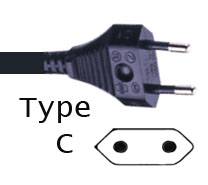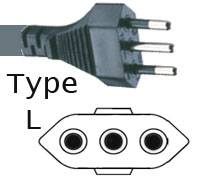Uruguay, located in South America between Argentina and Brazil, is a small yet vibrant country known for its stunning beaches, rich cultural heritage, and progressive attitudes. From the colonial charm of its capital, Montevideo, to the pristine shores of Punta del Este and the historic streets of Colonia del Sacramento, Uruguay offers visitors a diverse array of experiences. Whether you’re exploring the cobblestone streets of its colonial towns, indulging in traditional Uruguayan cuisine, or unwinding on its sun-kissed beaches, Uruguay promises a warm welcome and unforgettable adventures.
Ultimate Uruguay Travel Guide
Destinations
Best time to go
The best time to visit Uruguay is during the spring (October to November) and autumn (March to April) months when the weather is mild, and tourist crowds are smaller. During these seasons, temperatures are comfortable for outdoor activities, and the country’s natural beauty is at its peak. Summer (December to February) is the peak tourist season, characterized by hot weather, crowded beaches, and lively festivals, particularly in coastal areas. Winter (June to August) is cooler and less crowded, making it an excellent time to explore Uruguay’s cities and cultural attractions.
Average Temperature By Month
January: 20°C to 28°C (68°F to 82°F)
February: 20°C to 28°C (68°F to 82°F)
March: 18°C to 25°C (64°F to 77°F)
April: 15°C to 21°C (59°F to 70°F)
May: 11°C to 17°C (52°F to 63°F)
June: 8°C to 14°C (46°F to 57°F)
July: 8°C to 13°C (46°F to 55°F)
August: 9°C to 15°C (48°F to 59°F)
September: 11°C to 17°C (52°F to 63°F)
October: 13°C to 20°C (55°F to 68°F)
November: 15°C to 22°C (59°F to 72°F)
December: 18°C to 25°C (64°F to 77°F)
What To Expect
Time Zone:
Uruguay operates on Uruguay Standard Time (UYT), which is UTC-3:00, with no daylight saving time adjustments.
Currency:
The official currency of Uruguay is the Uruguayan Peso (UYU). ATMs are widely available in urban areas, and credit cards are accepted at most hotels, restaurants, shops, and tourist attractions.
Language:
Spanish is the official language of Uruguay and is spoken by the majority of the population. English is also spoken, especially in tourist areas and among the younger generation, but proficiency may vary.
Airport:
Carrasco International Airport (MVD) in Montevideo is the main international airport serving Uruguay, with connections to cities in South America, North America, Europe, and beyond. The airport is located approximately 19 kilometers (12 miles) east of downtown Montevideo and offers various transportation options to reach the city center and other destinations in Uruguay.
How To Get Around
Public Transportation: Uruguay has a reliable and affordable public transportation system, including buses and taxis. Montevideo and other major cities have extensive bus networks that connect different neighborhoods and suburbs. In addition, taxis are readily available and can be hailed on the street or booked through ride-hailing apps like Uber.
Rental Cars: Renting a car is a convenient option for exploring Uruguay, especially if you plan to visit rural areas or smaller towns. Several international car rental companies operate at airports and in major cities, offering a range of vehicles to suit different preferences and budgets.
Bicycles: Many cities in Uruguay, including Montevideo and Colonia del Sacramento, are bike-friendly, with dedicated bike lanes and rental services available for visitors who want to explore on two wheels. Cycling is a popular and eco-friendly way to discover Uruguay’s urban centers and scenic landscapes.
Average Temperature By Month:
January: 20°C to 28°C (68°F to 82°F)
February: 20°C to 28°C (68°F to 82°F)
March: 18°C to 25°C (64°F to 77°F)
April: 15°C to 21°C (59°F to 70°F)
May: 11°C to 17°C (52°F to 63°F)
June: 8°C to 14°C (46°F to 57°F)
July: 8°C to 13°C (46°F to 55°F)
August: 9°C to 15°C (48°F to 59°F)
September: 11°C to 17°C (52°F to 63°F)
October: 13°C to 20°C (55°F to 68°F)
November: 15°C to 22°C (59°F to 72°F)
December: 18°C to 25°C (64°F to 77°F)
Plugs:
Uruguay uses electrical outlets that are compatible with Type C and Type F plugs. Type C plugs have two round pins, while Type F plugs have two round pins with two grounding clips on the sides. The standard voltage is 230 volts AC, with a frequency of 50Hz.
VPN:
While internet access in Uruguay is generally unrestricted, using a virtual private network (VPN) can provide added privacy and security, especially when accessing public Wi-Fi networks or sensitive online information.
Safety:
Uruguay is considered one of the safest countries in Latin America, with low crime rates and a stable political environment. However, it's essential to take standard precautions to ensure your safety and well-being while visiting the country. Be aware of your surroundings, particularly in crowded areas and tourist hotspots, and keep an eye on your belongings to prevent theft or pickpocketing. When exploring urban areas or using public transportation, use reputable taxi services and avoid walking alone late at night. Additionally, adhere to local laws and regulations, particularly when it comes to alcohol consumption, drug possession, and personal conduct in public spaces.
Credit Cards and Banks
Credit Cards:
Credit card acceptance in Uruguay is widespread, especially in urban areas, tourist destinations, hotels, restaurants, and larger shops. Visa and MasterCard are the most commonly accepted cards, followed by American Express and Diners Club. Contactless payments, including Apple Pay and Google Pay, are also becoming increasingly common.
Debit Cards:
Debit cards are commonly used in Uruguay for ATM withdrawals and some purchases. Most banks issue debit cards that can be used domestically and internationally. Make sure to inform your bank of your travel plans to avoid any issues with card usage abroad.
ATMs:
ATMs are readily available in cities, towns, and tourist areas throughout Uruguay, allowing you to withdraw Uruguayan Pesos (UYU). Most ATMs accept international cards, but it’s advisable to use ATMs located inside banks or major shopping centers for security. Some ATMs may have withdrawal limits, so plan accordingly.
Currency Exchange:
The official currency of Uruguay is the Uruguayan Peso (UYU). It’s recommended to carry Uruguayan Pesos for transactions in Uruguay. However, US dollars are also widely accepted, especially in tourist areas. You can exchange major foreign currencies at banks, currency exchange booths, and some hotels.
Banks:
Major banks in Uruguay include:
- Banco de la República Oriental del Uruguay (BROU): One of the largest banks in Uruguay, Banco de la República Oriental del Uruguay offers a wide range of banking services including savings accounts, loans, and foreign exchange.
- Banco Itaú Uruguay: Another prominent bank in Uruguay, Banco Itaú Uruguay provides various banking products and services for individuals and businesses.
Traveler’s Checks:
Traveler’s checks are becoming less common worldwide, and their usage is limited in Uruguay. It’s recommended to carry cash or use alternative payment methods such as credit/debit cards or ATMs for transactions. However, some banks may still offer services for cashing traveler’s checks, albeit with a fee.
Tips for Banking in Uruguay:
- Notify your bank before traveling to Uruguay to inform them of your travel plans and avoid any issues with card usage abroad.
- Keep your PIN and card information secure, and be cautious when using ATMs, especially in secluded areas or at night.
- Familiarize yourself with the current exchange rate to ensure fair transactions when exchanging currency.
- Carry small denominations of Uruguayan Pesos for smaller purchases, as change may be limited.
By understanding the banking system in Uruguay, you can ensure a smooth and hassle-free financial experience during your travels in the country.
Locations
Uruguay
TRAVEL FACTS
US State Dept Travel Advisory
The US Department of State currently recommends US citizens exercise increased caution in Uruguay due to crime. Consult its website via the link below for updates to travel advisories and statements on safety, security, local laws, and special circumstances in this country.
https://travel.state.gov/content/travel/en/traveladvisories/traveladvisories.html
Passport/Visa Requirements
For the latest passport and visa requirements for this country, please consult the U.S. State Department’s “Learn About Your Destination” search tool, available through the link below.
US Embassy/Consulate
+(598) 1770-2000; US Embassy Montevideo, Laura Muller 1776, Montevideo 11200, Uruguay; MontevideoACS@state.gov; https://uy.usembassy.gov/
LGBTQIA+ Travelers
Telephone Code
598
Local Emergency Phone
999, 911
Vaccinations
See WHO recommendations
Climate
Warm temperate; freezing temperatures almost unknown
Currency (Code)
Uruguayan pesos (UYU)
Electricity/Voltage/Plug Type(s)
220 V / 50 Hz / plug types(s): C, F, L



Major Languages
Spanish
Major Religions
Roman Catholic, Protestant, African American cults/Umbanda, and other
Time Difference
UTC-3 (2 hours ahead of Washington, DC, during Standard Time)
Potable Water
Yes
International Driving Permit
Suggested; additionally, if you plan to drive in Uruguay, you will need an Inter-American Driving Permit issued by the AAA
Road Driving Side
Right
Tourist Destinations
Montevideo; Colonia del Sacramento; Santa Teresa National Park; Punta del Diablo; Carmelo; Salto; Piriapolis
Major Sports
Soccer, basketball, rugby
Cultural Practices
Uruguayans stand very close when conversing (in both social and business settings), often touching shoulders and/or holding arms while talking. The North American “OK” sign (thumb and index finger in a circle) is considered very rude.
Tipping Guidelines
Tipping 10% is normal at restaurants. At an airport or hotel, tip the porter 20 pesos for baggage handling.
Souvenirs
Leather and suede goods, amethyst jewelry, woolen items
Traditional Cuisine
Chivito — a sandwich filled with slices of churrasco (grilled/roasted and thinly sliced beef), ham, bacon, tomatoes, lettuce, melted mozzarella, and a topping of fried (or sometimes boiled) eggs
Please visit the following links to find further information about your desired destination.
World Health Organization (WHO) – To learn what vaccines and health precautions to take while visiting your destination.
US State Dept Travel Information – Overall information about foreign travel for US citizens.
To obtain an international driving permit (IDP). Only two organizations in the US issue IDPs:
American Automobile Association (AAA) and American Automobile Touring Alliance (AATA)
How to get help in an emergency?
Contact the nearest US embassy or consulate, or call one of these numbers:
from the US or Canada – 1-888-407-4747 or from Overseas – +1 202-501-4444
Central Intelligence Agency.
The World Factbook.
/the-world-factbook
(May 8, 2024)



